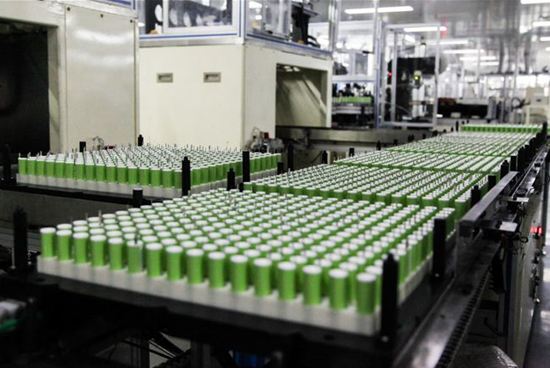Lithium-Ion Boat Battery Review
Jun 04, 2019 Pageview:1151
Each year billions of Lithium-ion batteries are sold. For most of the part, these batteries have a pretty good record when it comes to safety. But ultimately, the good things go bad. Marines often tried to keep the batteries safe but eventually, there have been some accidents which report different. The Lithium-ion batteries which weren’t stored properly caught fire and led to big accidents.
So, here we will discuss the Lithium-ion Boat Batteries so that the marines or the people who just ships the batteries knows how to do it right.
Marine High-Performance lithium-ion batteries:
Let’s talk about Marine Lithium-ion batteries. The lithium iron phosphate battery is the marine battery and it acts like a big cell phone battery for the boats. The batteries are quite similar to the ones which are present in your phones. But you don’t have to worry about any explosion and wearing out the batteries in a short span of time. These marine batteries are ideal for trolling motors or to run lots of accessories used on boats. After all, the batteries are designed to maintain a steady charge.
The main point for using these batteries is high performance. When it comes to AGM or Deep cycle batteries, they have a lead-acid mixture that provides power. They are powerful at the start and they drain out slowly over several hours and hence the performance slows down.
But the Lithium-ion batteries don’t have the lead acid. Hence the charge depletion rate is steady even when the battery is running low. Thus, you don’t even to worry about the battery charge and performance. Another good thing about these batteries is that they weigh less and they can even outlive their boat’s life which is quite remarkable.
Why lithium-ion batteries could be a problem on boats?
The technicians have always mulled over improving the performance of the vessel by reducing the weight of the batteries. When it comes to high-tech racing sailboats the boost speed and efficiency of batteries matters a lot. Thus, people always come up with brilliant ways to find a better way to find a sustainable source.
Not everyone can know the technical details about batteries. And the lack of knowledge sometimes costs more than people realize. So, let’s trickle down the list of dangers of having Lithium-ion batteries on your boat.
1: Even though the technology has become better, there are still serious dangers of using Lithium-ion batteries. The batteries have a sophisticated battery management system along with unique overcurrent protection. Thus, you can’t simply drop the batteries anywhere and replace them with a conventional battery. Doing this will be like a thermal runaway for the batteries, i.e. it’ll lead to a fire that won't extinguish.
2: Related to the above problem, if one Lithium-ion battery cell enters the thermal runaway, it begins overheating the neighboring cell too and the process goes on. It can result in a fatal incident.
3: Even the cell doesn’t catch fire, it can swell up and rupture the venting that is keeping the flammable electrolyte in check.
4: The power management systems installed on the boats to handle the batteries are vulnerable to lightning strikes and power surges along with any other incident that can cause a fire.
If these dangers aren’t enough to make sure that the batteries are kept safe and sound no matter what, then the price will make sure of it. The high-performance batteries don’t come cheap. A single replacement can cost thousands of dollars. So, you better make sure that the Lithium-ion Boat Battery is maintained throughout the journeys. Still, boats have propane systems to avoid a possible disaster.
How to Maintain Your Lithium Ion Boat Battery?
As you now know the risk of having a Lithium-ion battery on the boat, it is important that you are also aware of the maintenance methods. Luckily, the batteries don’t require much maintenance but storing them in the right place is a big way to keep them away from harm’s way. Keep the following points in mind and the battery will stay intact for a long time.
· As the lifespan of the Lithium-ion batteries depreciates eventually, the manufacturers take a conservative approach while specifying the life of a battery. There is even a difference in consumer batteries and industrial batteries. The average lifecycle is 300 to 500 charge and discharge cycles. So, make sure that you provide a viable voltage to the battery.
· These batteries have a high-temperature threshold as compared to the lead acid batteries. But still, it can get affected by excessive heat. Even the passive temperature of 30°C is considered elevated for them and it lowers the lifecycle of battery. So, you have to prevent the battery from reaching that temperature during storage or cycling.
· The industrial solution for better performance is to charge the battery with a lower voltage. It might decrease the battery capacity by 10% roughly but it will double the battery lifecycle.
· Focus on the ABYC guidelines to ensure that the battery is well constructed and safe to use.
· Be careful with tools around the battery. If you accidentally drop a wrench between the terminals, you might start a fire on the boat. So, keep the lid on batteries.
· Install ventilation in the battery compartment. Don’t let the leaked gas or electrolyte gather up and react if the gases escape the compartment, you might be safe from a big explosion.
· Use the Smart Three Stage Marine Unit to install the battery charger on the boat as it offers a sophisticated regime. Using cheap parts will severely affect the battery life.
Turn off the batteries when you leave the boat, clean the tops frequently, be careful while connecting the terminals, etc. Every small step you take can mean a lot to keep you safe. As careful as you are, the better it will be for you and your crew.
Leave Message
Hottest Categories
-
Hottest Industry News
-
Latest Industry News












